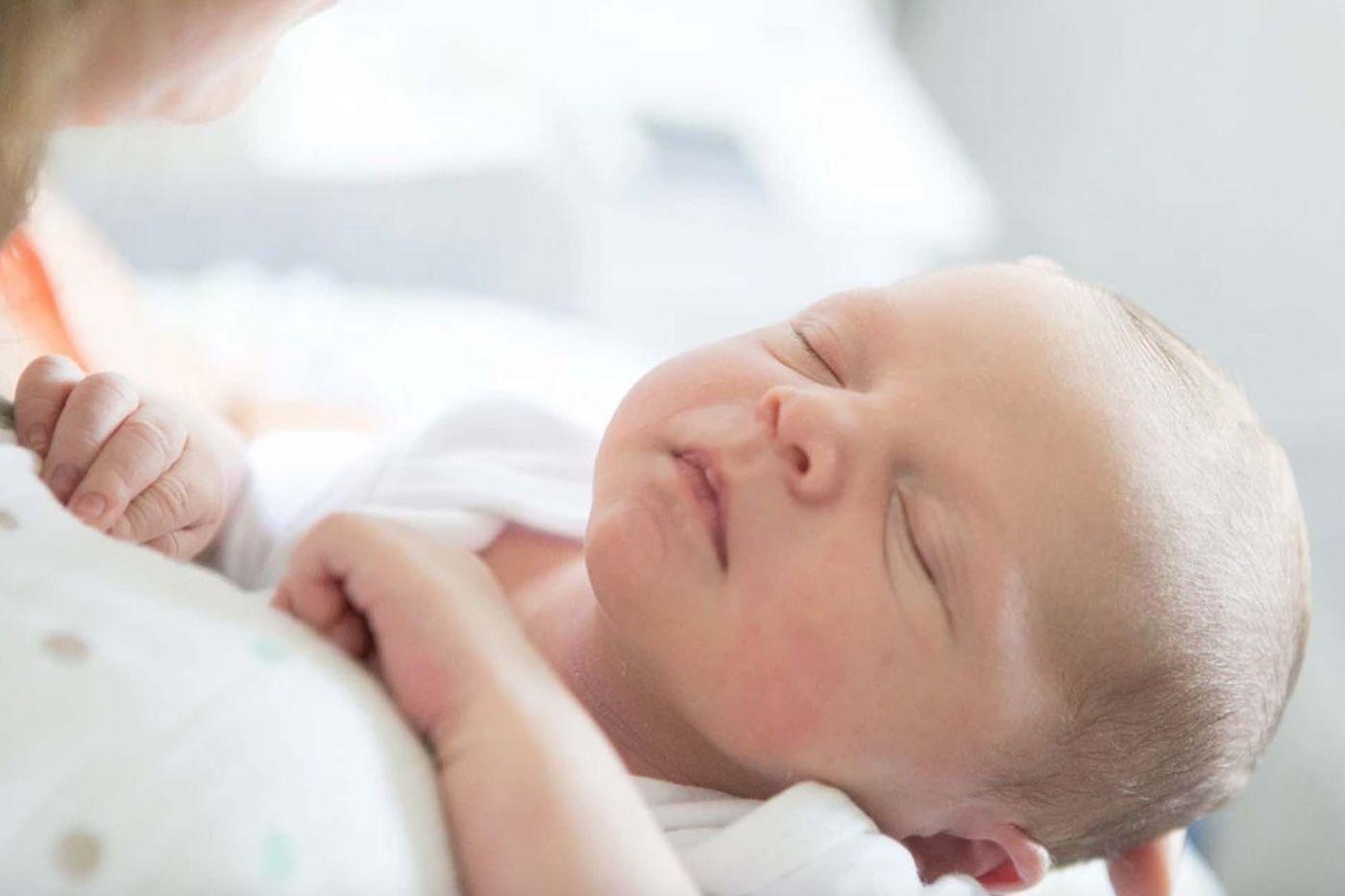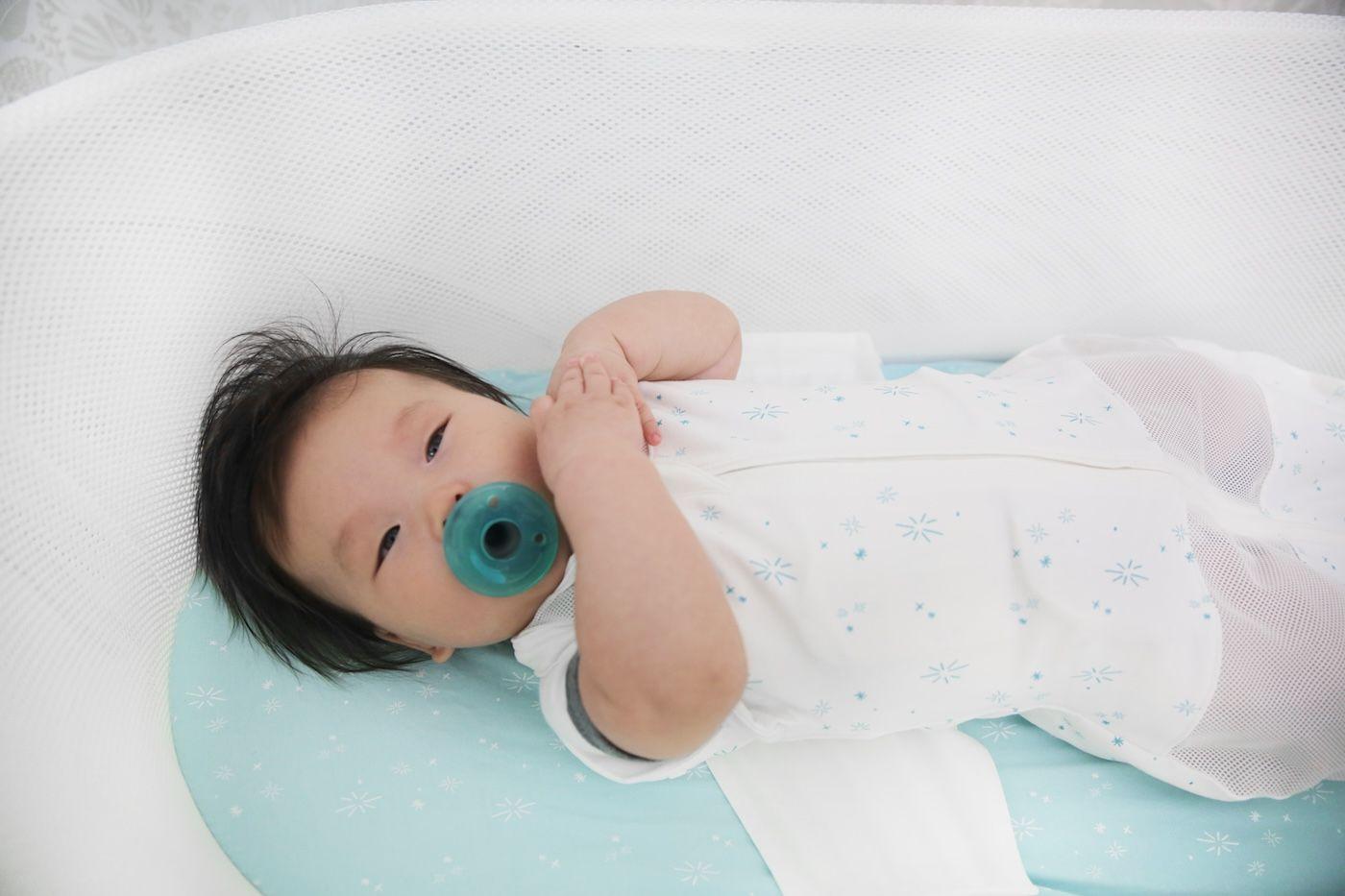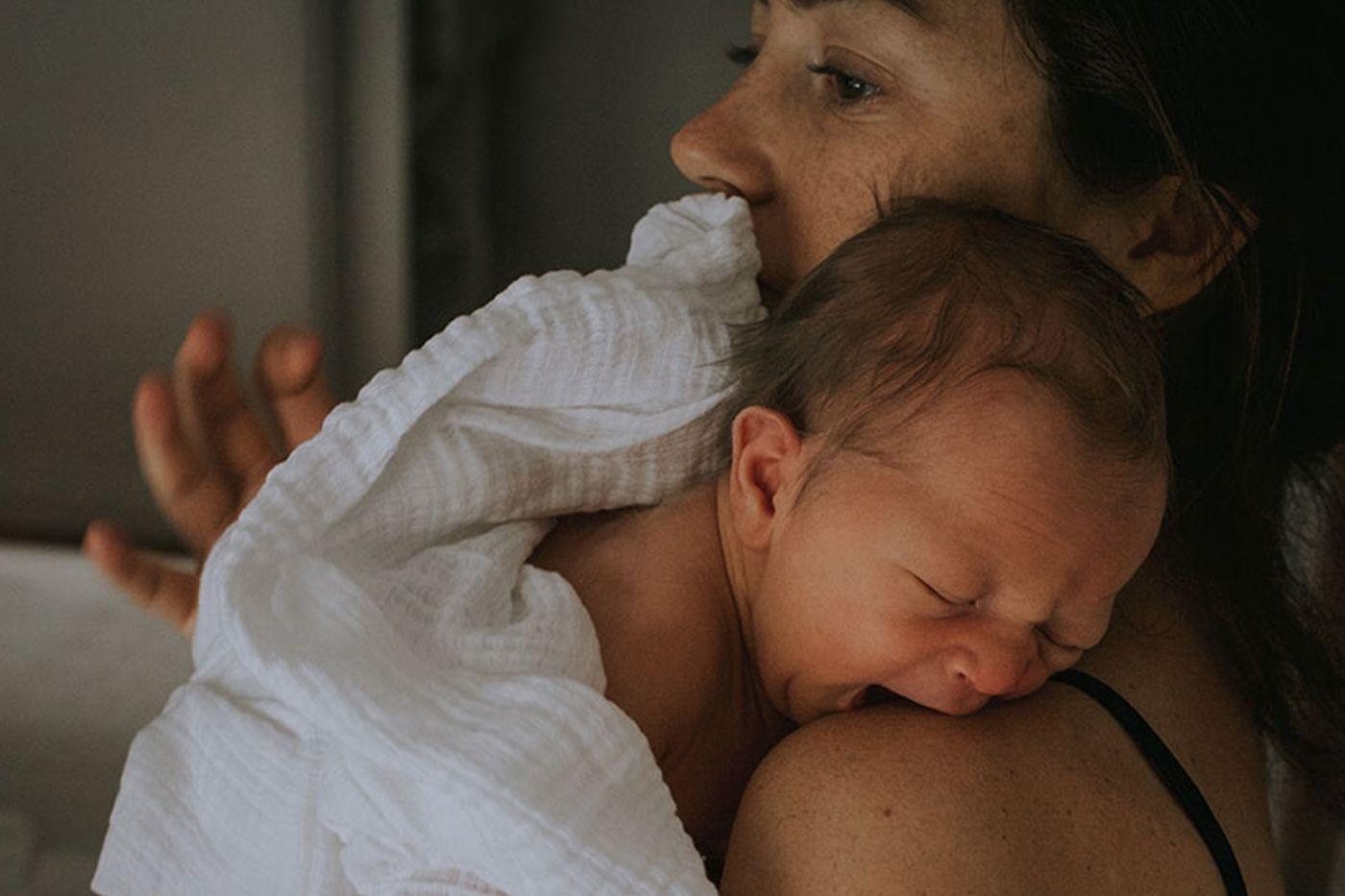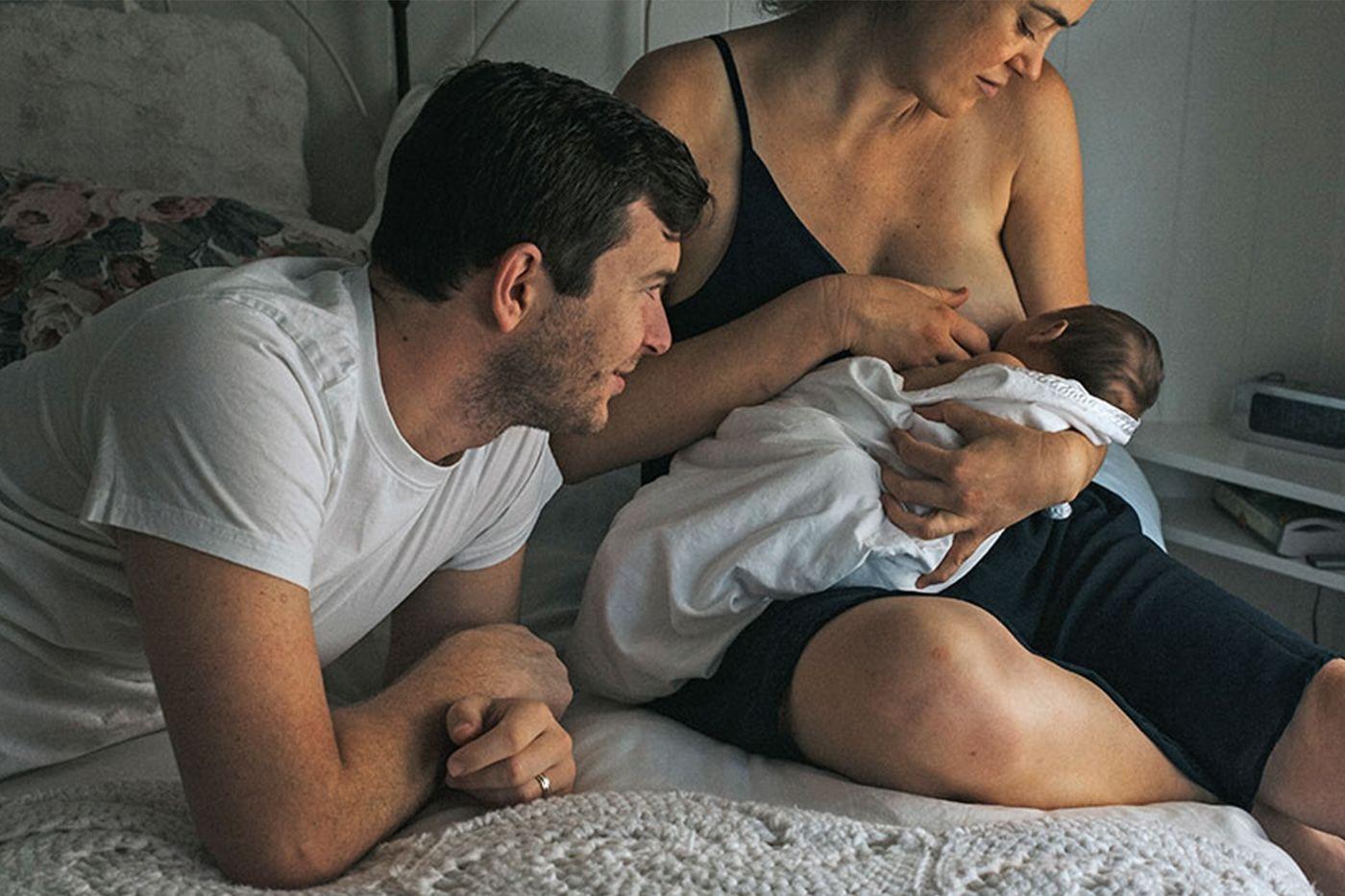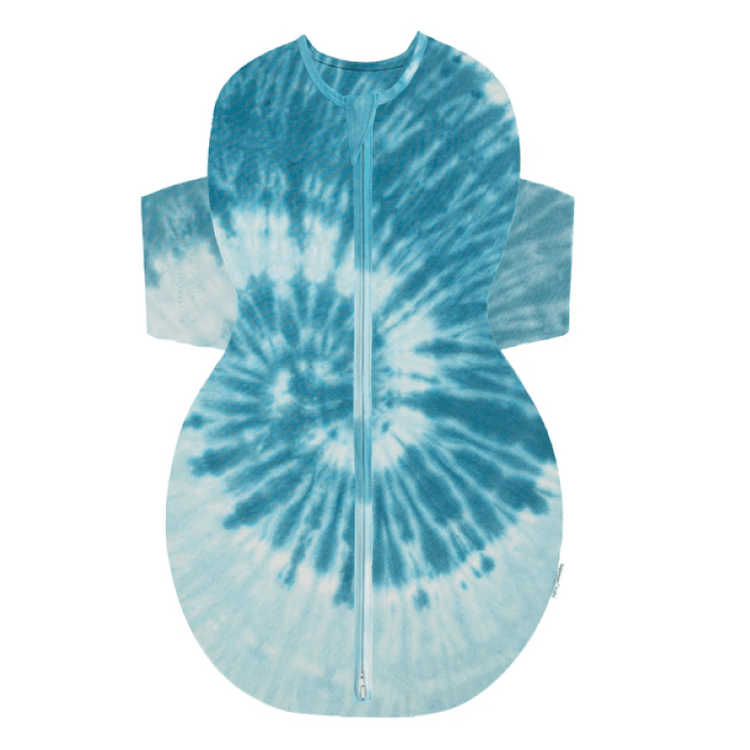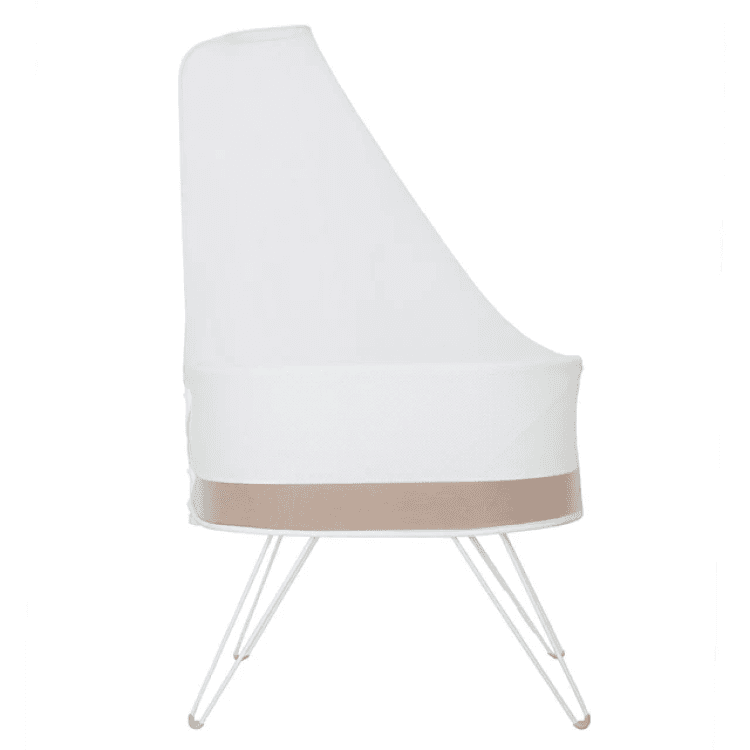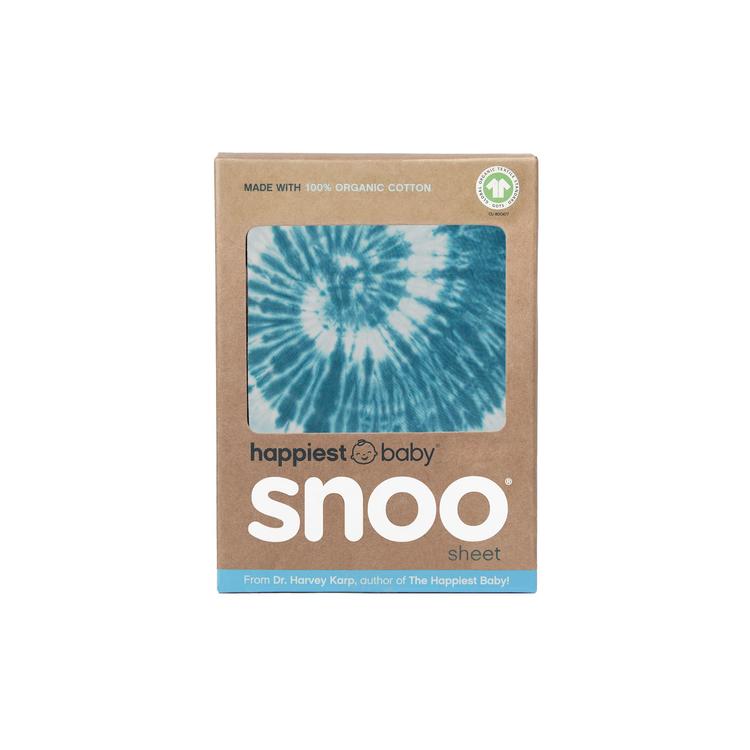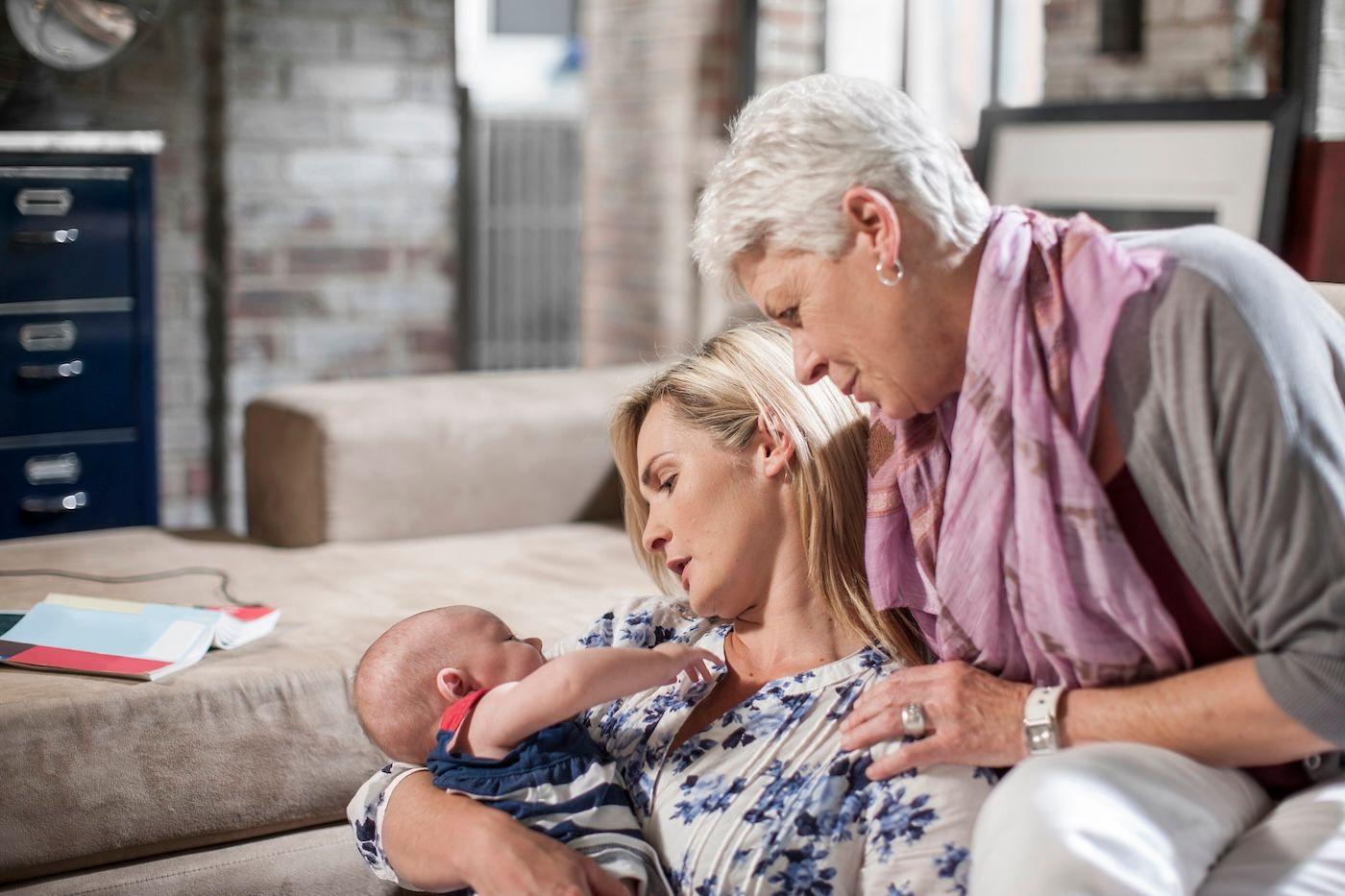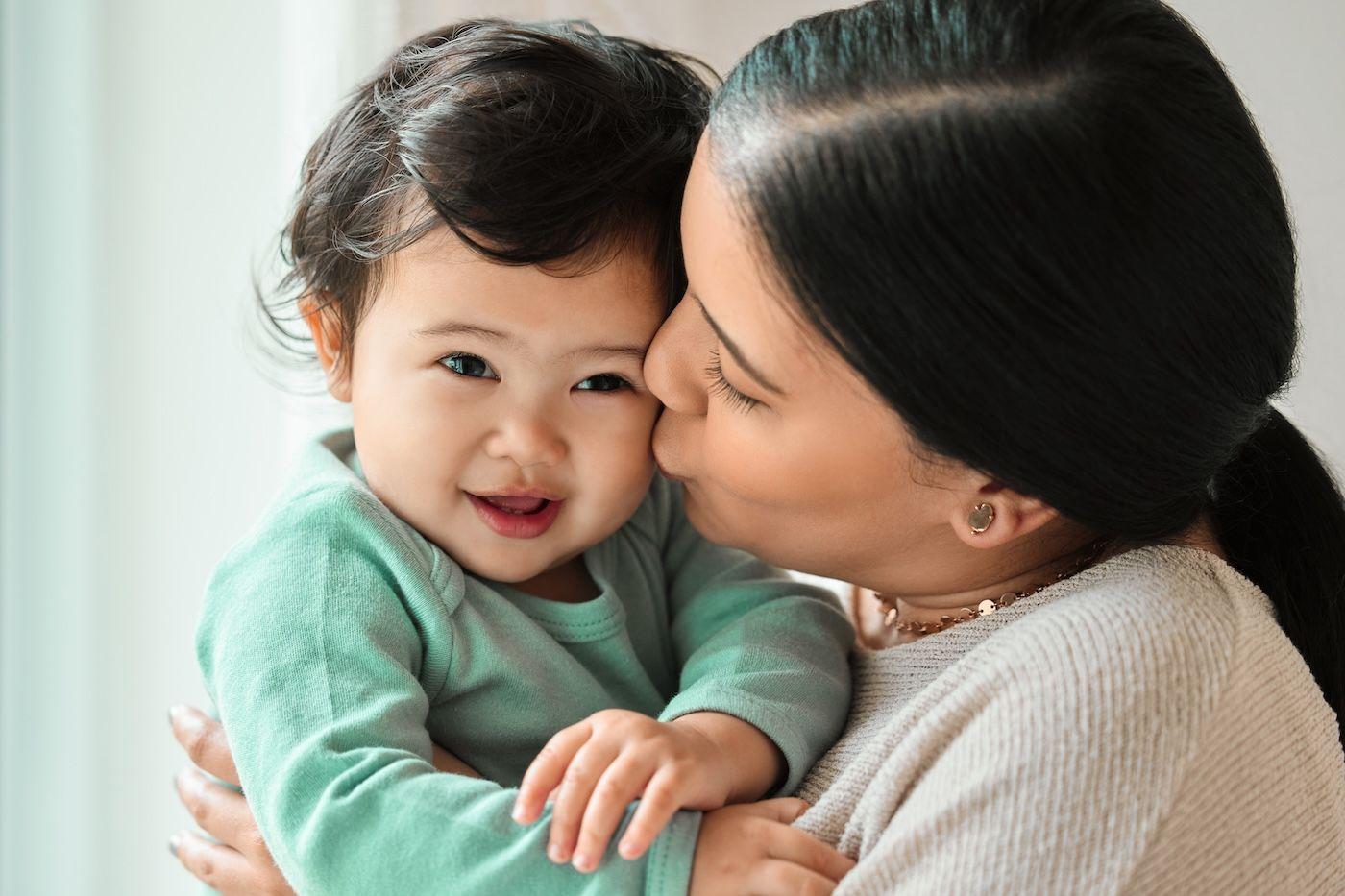ELTERN
Schlaf: Der ultimative Gehirn-Booster
Wir alle fühlen uns nach einer guten Nacht erholt... aber warum?

Geschrieben von
Happiest Baby Staff
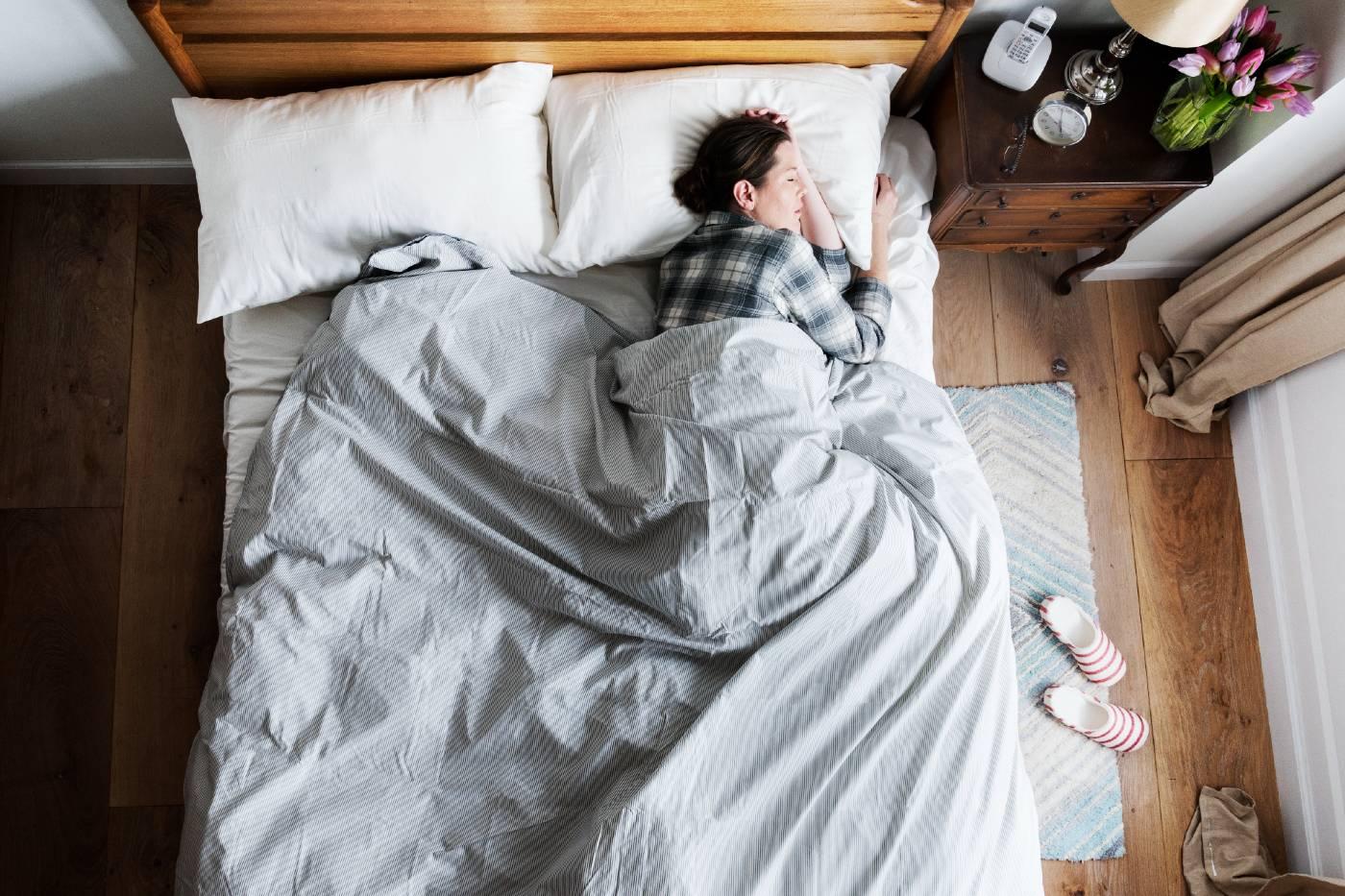
Wir alle fühlen uns nach einer guten Nacht erholt... aber warum? Und hat dieses „sich besser fühlen“ tatsächlich Auswirkungen auf unsere allgemeine psychische Gesundheit? Es stellt sich heraus, dass es das tut!
Schlaf hilft ganz einfach dabei, dass Ihr Gehirn richtig funktioniert. Während Sie schlummern, ist Ihr Gehirn damit beschäftigt, neue Wege zu bilden, um Ihnen beim Lernen und Erinnern von Informationen zu helfen, Entscheidungen zu treffen, Probleme zu lösen, aufmerksam zu sein und kreativ zu sein. Und der mentale Schub, den Sie im Schlaf erhalten, hat auch einen „tiefgreifenden Effekt“ auf Ihre emotionale und geistige Gesundheit. Mindestens 7 Stunden Schlaf pro Nacht können dabei helfen, Depressionen abzuwehren, schlechte Laune zu unterdrücken, das Glück zu verbessern und Angst zu beseitigen. Lesen Sie weiter, um mehr über die vielen Weisen zu erfahren, wie Schlaf unsere mentale Gesundheit schützt!
Wie Schlaf die Stimmung verbessert
Haben Sie schon einmal bemerkt, dass Sie weniger dazu neigen, wegen etwas scheinbar Belanglosem aus der Haut zu fahren oder zusammenzubrechen, wenn Sie genügend Schlaf bekommen? Das liegt daran, dass unser Gehirn während des REM-Schlafs, in dem wir süß träumen, besonders daraufvorbereitet ist, die emotionalen Ereignisse zu regulierendie wir tagsüber erlebt haben, was unsere Fähigkeit verbessert, unsere Gefühle während der Wachstunden zu verstehen und zu kontrollieren. REM-Schlaf tritt in der zweiten Nachthälfte auf, also wenn Sie am Schlaf sparen,verbringen Sie weniger Zeit in dieser wichtigen Schlafphase. REM-Schlaf ist so wirkungsvoll, dass sogar ein qualitativ hochwertiger REM-Schlafvor einer emotionalen Erfahrungauch hilft, unser Gehirn besser auf starke Emotionen zu reagieren. Neben der Vermeidung von Überreaktionen stärkt ausreichender Schlaf auch positive Erfahrungen, was wahrscheinlich ein Teil des Grundes ist, warum viele Experten Schlaf als „Übernachttherapie“ bezeichnen. Zum Beispiel…
Schlaf verbessert die Lebenszufriedenheit.
Wenn sowohl neue als auch erfahrene Eltern ausreichend Schlaf bekommen, führt dies zu verbesserter psychischer Gesundheit und allgemeiner Lebenszufriedenheit, laut einem Bericht aus dem Jahr 2022 in der Zeitschrift Sleep Health. In der gleichen Weise fand ein Bericht in PLOS ONE, dass die selbstberichtete „Schlafqualität“ einen signifikanten Einfluss auf das Maß an Glück und Stress hatte.
Schlaf fördert Gefühle der Freude.
Wenn Menschen länger als gewöhnlich schliefen, neigten sie dazu, am folgenden Tag mehr Freude aus positiven Erfahrungen zu schöpfen. Und sie waren besser in der Lage, diese guten Gefühle zu bewahren, selbst wenn sie mit stressigen Situationen konfrontiert wurden, bemerkt ein Bericht aus dem Jahr 2020 in der Zeitschrift Gesundheitspsychologie.
Schlaf hilft dabei, depressive Symptome abzuwehren.
Über 90% der Personen, die eine „gute Schlafgesundheit“ haben, berichten laut der National Sleep Foundation’s 2023 Sleep in America-Umfrage über keine bedeutenden Symptome von Depression.
Schlaf reduziert Stress.
Eine 2021 durchgeführte Meta-Analyse in Sleep Medicine Reviews ergab, dass die Verbesserung des Schlafs dazu beiträgt, Depressionen, Angstzustände und Stress zu reduzieren – und je größer die Verbesserung des Schlafs, desto größer die Verbesserung der psychischen Gesundheit.
Wie schlechter Schlaf das Gehirn beeinflusst
Während ausreichender Schlaf (7+ Stunden pro Nacht für Erwachsene) dazu beiträgt, die Stimmung und die Gehirnfunktion zu verbessern, bewirkt Schlafmangel das Gegenteil. Leider schlafen laut dem Zentrum für Krankheitskontrolle und Prävention, ein Drittel der Erwachsenen nicht genug... wobei frischgebackene Eltern den größten Teil dieses Schlafmangels zu spüren bekommen. (Studien zeigen, dass Mütter nach der Geburt eines Babys über eine Stunde Schlaf pro Nacht verlieren!)
Ohne ausreichenden Schlaf werden die Neuronen im Gehirn überarbeitet und verlieren an Plastizität, was sich negativ auf grundlegendes Denken und Stimmung auswirkt. Die Auswirkungen sind weitreichend. Beispielsweise haben Menschen mit Schlaflosigkeit ein zehnfach höheres Risiko, eine Depression zu entwickeln, und ein erhöhtes Risiko für Angstzustände im Vergleich zu denen, die ausreichend Ruhe finden. (Es wird angenommen, dass Schlaflosigkeit Entzündungsmarker erhöhen und wichtige neuronale Prozesse verändern kann, einschließlich der Stressreaktion des Gehirns, was die emotionale Regulation, Stabilität und mehr beeinflusst.)
Und es gibt noch weitere Weisen, wie unzureichender Schlaf das Gehirn beeinflussen kann…
Unzureichender Schlaf kann die Angst verstärken.
Schlafmangel kann bei Menschen mit hohem Risiko Angstzustände auslösen und bei ansonsten gesunden Personen die Angst verstärken.
Schlafmangel kann depressive Symptome verstärken.
Personen, die regelmäßig weniger als 7 Stunden pro Nacht schlafen, sind dreimal wahrscheinlicher von mittelschweren bis schweren Symptomen einer Depression betroffen als diejenigen, die die empfohlenen 7 bis 9 Stunden schlafen. Interessanterweise legt die Forschung nahe, dass, wenn die Mutter schlecht schläft, sowohl sie als auch ihr Partner wahrscheinlicher depressive Symptome aufweisen.
Schlechter Schlaf kann Symptome einer postpartalen Depression verschlimmern.
Forschungen im Journal BMC Schwangerschaft und Geburt zeigen, dass Frauen mit schlechtem Schlaf eher dazu neigen, depressive Symptome während der Schwangerschaft und nach der Geburt des Babys zu erleben. Gleichzeitig wurde nachgewiesen, dass Schlafmangel die Symptome einer postpartalen Depression ebenfalls verschlimmert.
Schlafmangel kann sich negativ auf die Erziehung auswirken.
Studien zeigen, dass Schlafmangel es für Betreuungspersonen schwierig machen kann, ihre Emotionen zu regulieren, was zu weniger „positiver Erziehung“ in der Stunde vor der Schlafenszeit des Kindes führt. Ein anderer Bericht ergab, dass 52% der Eltern, die weniger als 8 Stunden Schlaf pro Nacht bekamen, die Geduld verloren oder ihre Kinder anschrien.
Schlafmangel erhöht den Stress.
Unzureichender Schlaf (6 Stunden oder weniger) kann das häufige Gefühl von Stress erheblich erhöhen, sowie andere Arten von „psychischem Unbehagen“ (wie Depressionen, Angstzustände und andere emotionale Probleme), laut einem Bericht aus dem Jahr 2021.
Unzureichender Schlaf verstärkt das Gefühl von Ärger.
Etwa 45 % der Menschen, die weniger als 8 Stunden Schlaf pro Nacht bekommen, berichten eher von Gereiztheit oder Wut, so die American Psychological Association. (Bei Schlafmangel hat das Gehirn enorme Schwierigkeiten, die Reaktivität im emotionalen Zentrum des Gehirns, der sogenannten Amygdala, zu unterdrücken.)
Haftungsausschluss: Die Informationen auf unserer Website sind KEINE medizinischen Ratschläge für eine bestimmte Person oder einen bestimmten Zustand. Sie sind lediglich als allgemeine Informationen gedacht. Wenn Sie medizinische Fragen und Bedenken bezüglich Ihres Kindes oder Ihrer eigenen Gesundheit haben, wenden Sie sich bitte an Ihren Gesundheitsdienstleister. Muttermilch ist die beste Quelle der Ernährung für Babys. Es ist wichtig, dass Mütter in Vorbereitung auf das Stillen und währenddessen eine gesunde, ausgewogene Ernährung zu sich nehmen. Die Kombination von Stillen und Flaschenernährung in den ersten Lebenswochen kann die Muttermilchversorgung verringern und die Entscheidung, nicht zu stillen, ist schwer rückgängig zu machen. Wenn Sie sich entscheiden, Säuglingsnahrung zu verwenden, sollten Sie die Anweisungen sorgfältig befolgen.
Top-Nachrichten
DIESEN ARTIKEL TEILEN
ELTERN WAHL
Bestseller


